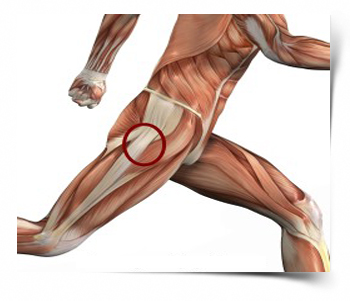 Do you experience pain in one or both hips whenever you twist them or when you cross your legs? Does the pain wake you up in the night and make it hard to get a good night’s sleep? When you get up in the morning, or when you get out of your car, are you stiff and do you find it initially difficult to move your legs? If any of these symptoms sound familiar, then it is likely that you have imbalances and alignment problems in your lower extremities that, in addition to generating hip pain, can eventually lead to degenerative joint disease in your hips if not treated.
Do you experience pain in one or both hips whenever you twist them or when you cross your legs? Does the pain wake you up in the night and make it hard to get a good night’s sleep? When you get up in the morning, or when you get out of your car, are you stiff and do you find it initially difficult to move your legs? If any of these symptoms sound familiar, then it is likely that you have imbalances and alignment problems in your lower extremities that, in addition to generating hip pain, can eventually lead to degenerative joint disease in your hips if not treated.
CAUSES:
Many causes of chronic hip pain originate in the hip joint, which is the joint that attaches your leg bones to your torso (via your pelvic bones), but not all of them do. The following is a look at some of the causes of chronic hip pain and how chiropractic care can help provide hip pain relief.
One of the factors that make hip pain relief so hard to find is that the source of the problem can be mysterious. Often pain that is felt in the hips may actually originate from an ailment not directly related to the hips, such as a hernia or aneurism, while sometimes pain that is felt in other parts of the body, such as the legs or lower back, may have its origins in the hips. In general, however, the leading causes of chronic hip pain include:
-
Injuries caused by gait problems, repetitive motion or overuse of the joint. These injuries are especially common among athletes and are one of the top causes of hip problems.
-
Otheo arthritis in the hip, and other age-related degenerative conditions. In these cases, the disease may be compounded by a previous injury, as well.
-
Fractures and other acute injuries.
-
Avascular necrosis, or the death of tissue within the bone.
-
Joint or bone infections in the hip area, which are typically marked by fever, redness or swelling.
While few causes of chronic hip pain are beyond the scope of chiropractic treatment, most are related to repetitive motion or gait. Gait problems, or misalignment when walking, usually indicate that something is out of whack in your spine, back or legs.
For example, if you strain your knee and it causes you to limp, the change in your gait can create hip pain. In addition, gait imbalances can be caused by carrying a baby or small child on your hip, leg length discrepancies, or foot pronation problems. Furthermore, your gait may vary to counterbalance new activities such as a job change, an alteration in the way you sit, a new sport or activity, or if you start driving for long periods of time on a regular basis. In other words, anything that creates an asymmetry or imbalance can cause painful hip problems. A chiropractor can help to bring hip pain relief by working with you to move your spine, hips and legs back into proper alignment for smoother, more comfortable motion.
Besides hip pain relief, another reason to seek treatment for gait problems is that these can indicate trouble with the cartilage that pads your hip joint, which can wear away and cause significant chronic hip pain. In some cases, chronic hip pain is an indication of a problem elsewhere in your back or spine. Sciatica, which is an inflammation of the sciatic nerve in your spine or lumbar discs, is typically detected by chronic hip pain or numbness and painful tingling down the back of your legs. A chiropractor can also help relieve the pressure and inflammation of your lumbar discs, thus bringing hip pain relief and increased comfort levels.
For proper hip pain treatment a chiropractic examination is necessary to pinpoint the cause. The goals of treatment include:
-
Reduce inflammation
-
Relaxing painful muscle spasm
-
Improving movement of the joint
-
Strengthening weakened muscles
